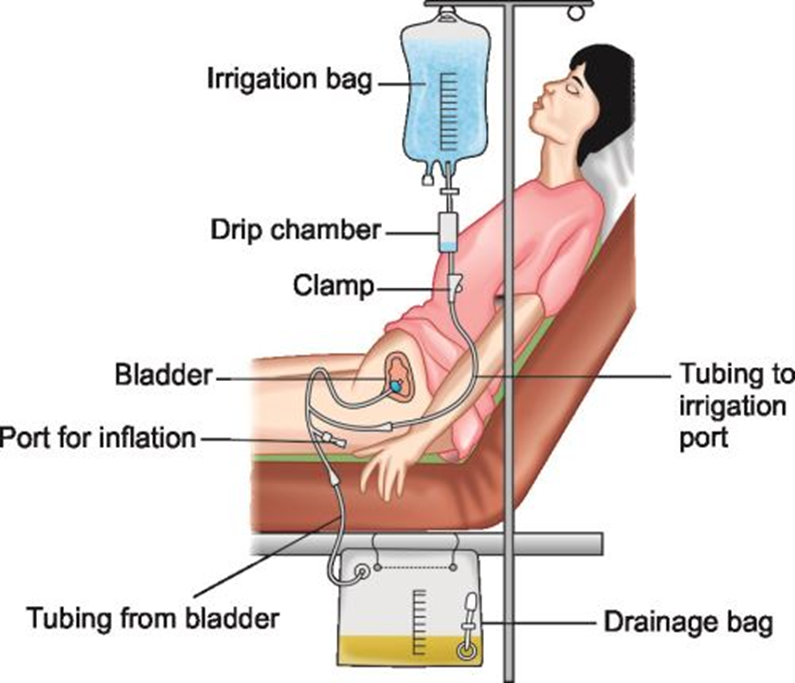A nurse is caring for a client who is confused and uncooperative. The client hit the nurse when they attempted to give them their medication. The nurse asks the charge nurse if she can apply restraints on the client. The charge nurse should explain to the nurse this action is a violation of the client’s rights and is an example of which tort?
Defamation of character
Invasion of privacy
Slander
False imprisonment
The Correct Answer is D
Choice A Reason:
Defamation of character is incorrect. Defamation of character involves making false statements about someone that damage their reputation. This can be in the form of slander (spoken) or libel (written). Applying restraints without proper justification does not fall under defamation of character.
Choice B Reason:
Invasion of privacy is incorrect. Invasion of privacy involves intruding into someone’s personal life without consent. This can include unauthorized access to personal information or spaces. Applying restraints without proper justification is not an invasion of privacy.
Choice C Reason:
Slander is incorrect. Slander is a form of defamation that involves making false spoken statements that damage someone’s reputation. Applying restraints without proper justification does not involve making false statements.
Choice D Reason:
False imprisonment is correct. False imprisonment involves restraining a person without legal justification or their consent. In a healthcare setting, applying restraints without proper justification or following legal and ethical guidelines constitutes false imprisonment and violates the client’s rights.
Nursing Test Bank
Naxlex Comprehensive Predictor Exams
Related Questions
Correct Answer is A
Explanation
Choice A Reason:
When calculating the fluid balance for a client undergoing continuous bladder irrigation (CBI), the irrigation solution must be deducted from the total urine output. This is because the irrigation fluid is not part of the client’s actual urine production but is an additional fluid introduced into the bladder to prevent or remove blood clots and ensure catheter patency. By deducting the irrigation solution from the total urine output, the nurse can accurately determine the client’s true urine output and fluid balance.

Choice B Reason:
Subtracting the irrigation solution from the intravenous flow sheet as output is incorrect. The intravenous flow sheet is used to document fluids administered intravenously, not those introduced into the bladder. Therefore, this choice does not apply to the management of continuous bladder irrigation.
Choice C Reason:
Documenting the intake hourly in the urine output column is also incorrect. The urine output column should reflect the actual urine produced by the client, not the irrigation solution. Including the irrigation solution in this column would lead to an inaccurate representation of the client’s urine output and fluid balance.
Choice D Reason:
Adding the irrigation solution to the oral intake column is incorrect as well. The oral intake column is designated for fluids consumed orally by the client. The irrigation solution is introduced directly into the bladder and should not be recorded as oral intake.
Correct Answer is C
Explanation
Choice A Reason:
“I will keep spare crutch tips handy.” This statement is correct and indicates good practice. Keeping spare crutch tips handy ensures that the client can replace worn or damaged tips promptly, maintaining the safety and effectiveness of the crutches.
Choice B Reason:
“I will inspect my crutches every day for signs of wear.” This statement is also correct. Regular inspection of crutches for signs of wear and tear helps prevent accidents and ensures that the crutches remain in good working condition.
Choice C Reason:
“I will bear the weight of my body on my axillas.” This statement is incorrect and indicates that the client needs additional education. Bearing weight on the axillas (armpits) can cause nerve damage and discomfort. The correct technique is to support the body’s weight with the hands and arms, not the axillas.
Choice D Reason:
“I will support most of the weight of my body with my arms.” This statement is correct. Supporting the body’s weight with the arms and hands is the proper technique for using crutches, as it prevents nerve damage and ensures better control and stability.
Whether you are a student looking to ace your exams or a practicing nurse seeking to enhance your expertise , our nursing education contents will empower you with the confidence and competence to make a difference in the lives of patients and become a respected leader in the healthcare field.
Visit Naxlex, invest in your future and unlock endless possibilities with our unparalleled nursing education contents today
Report Wrong Answer on the Current Question
Do you disagree with the answer? If yes, what is your expected answer? Explain.
Kindly be descriptive with the issue you are facing.
